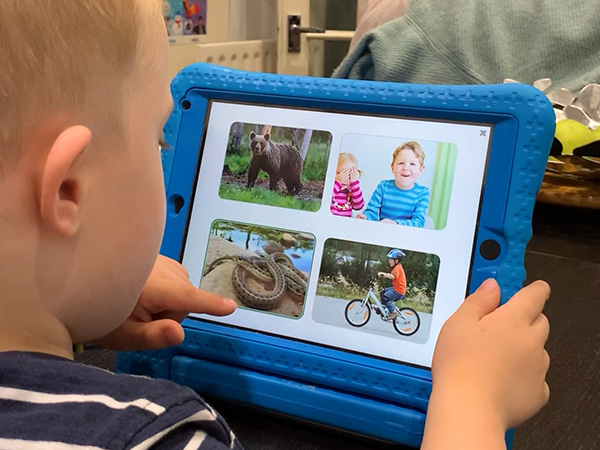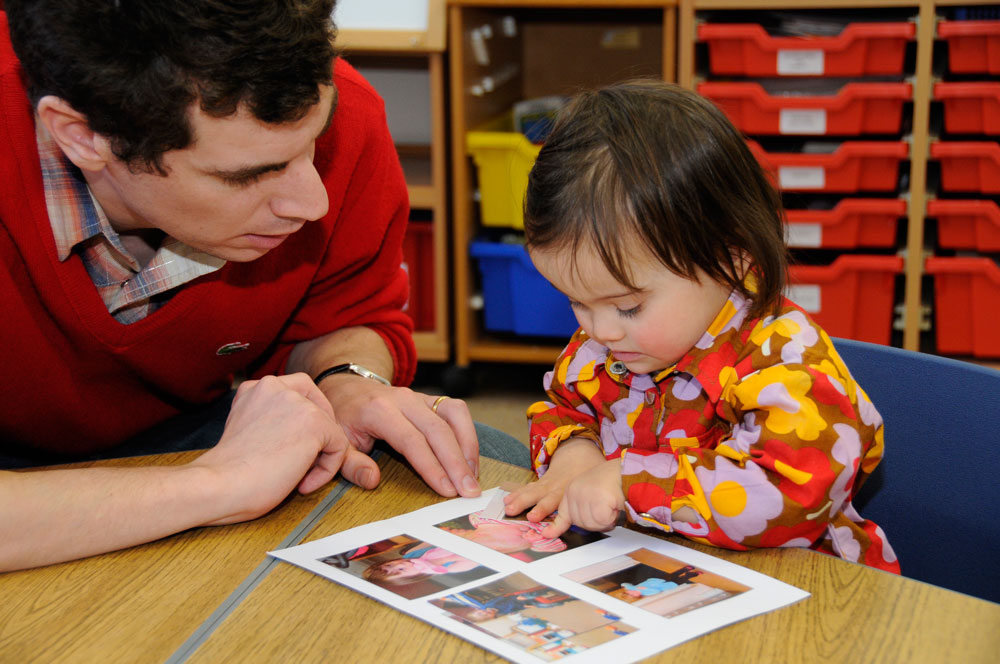Accelerating progress
For over 45 years, DSE has pioneered advances in early intervention and education for children with Down syndrome, transforming outcomes and opportunities for many thousands of young people around the world.
It started in 1979 with a belief that children with Down syndrome could achieve so much more than many expected and a study that investigated teaching reading. Since then, our work has transformed, and continues to transform, opportunities and outcomes for many thousands of young people with Down syndrome around the world.
Today, we are reimagining early intervention and education for children with Down syndrome, how to support families and professionals, and how to do scientific research.

Meeting specific learning needs
Children with Down syndrome share common patterns of developmental delays and learning difficulties. When we adapt support and teaching to take account of these specific learning needs, we can improve outcomes.
We can make the biggest differences when adaptations and interventions begin in the earliest months of life, and when families and education and healthcare professionals work in partnership to support each child’s development and learning.
However, identifying what to do and when to do it is not always straightforward.
While there are common patterns in development for all children with Down syndrome, there is also wide variability in rates of progress and the levels of skills achieved. Determining what is best for each child therefore requires an understanding of their current stage of development, skills, and rates of progress.
Support and teaching activities should then be adapted to each child’s current learning needs, using evidence-based strategies and interventions. However, even with high quality information from trusted sources, it is not always easy to know how to apply recommendations to each individual child.
We want to make it easier for families and professionals to access information, advice and recommended teaching activities that are adapted to each child’s current stage of development, skills, and rates of progress.

Over the past few years, we have been building LearningTracker – a platform that stores observations, tracks developmental progress, and offers every family access to expert, evidence-based advice, tailored to their child's unique needs.
We expect to launch the LearningTracker app in early 2026, followed by the LearningTracker for Professionals app in mid-2026.
Why LearningTracker?
Natural observations
We all observe our children. We watch what they can do and think about how they are progressing. We celebrate their achievements and worry about the things that challenge them. By observing our children, we can see where they are making good progress and where they may need more help and instruction.
From observations to advice
LearningTracker uses evidence-based specifications and rich models of early speech and language development to analyse observations about each child and provide personalised recommendations.
From observations to research
Scientific research is expensive and the funds available for research are increasingly limited. Collecting data on children's development at scale in home and school settings can be prohibitively expensive.
LearningTracker will connect researchers more directly with families and professionals and real-world data, shortening the time it can take for new scientific advances to deliver real benefits in children’s daily lives.
A platform for the future
In the past, it was not possible to provide everyone with expert advice and personalised guidance whenever and wherever they wanted it. Modern technologies are now helping to make this a reality.
LearningTracker will offer every family access to expert, evidence-based advice, tailored to their child's unique needs - accessible anytime from almost any device.
Underpinning this, we have built a platform that is secure, scalable and flexible and that will continue to evolve to take advantage of new technological and scientific advances. From digital speech analysis, hearing assessments through to individual education plans driven by insights from machine learning - there are countless opportunities to further develop this platform to enhance development and education for children with Down syndrome.
By adopting new technologies to develop intelligent, data-driven and highly personalised support services for families and professionals, we are changing how we deliver evidence-based advice, information and support to families and professionals around the world.
We hope that these new services will help us to better support you and the children you care for.

